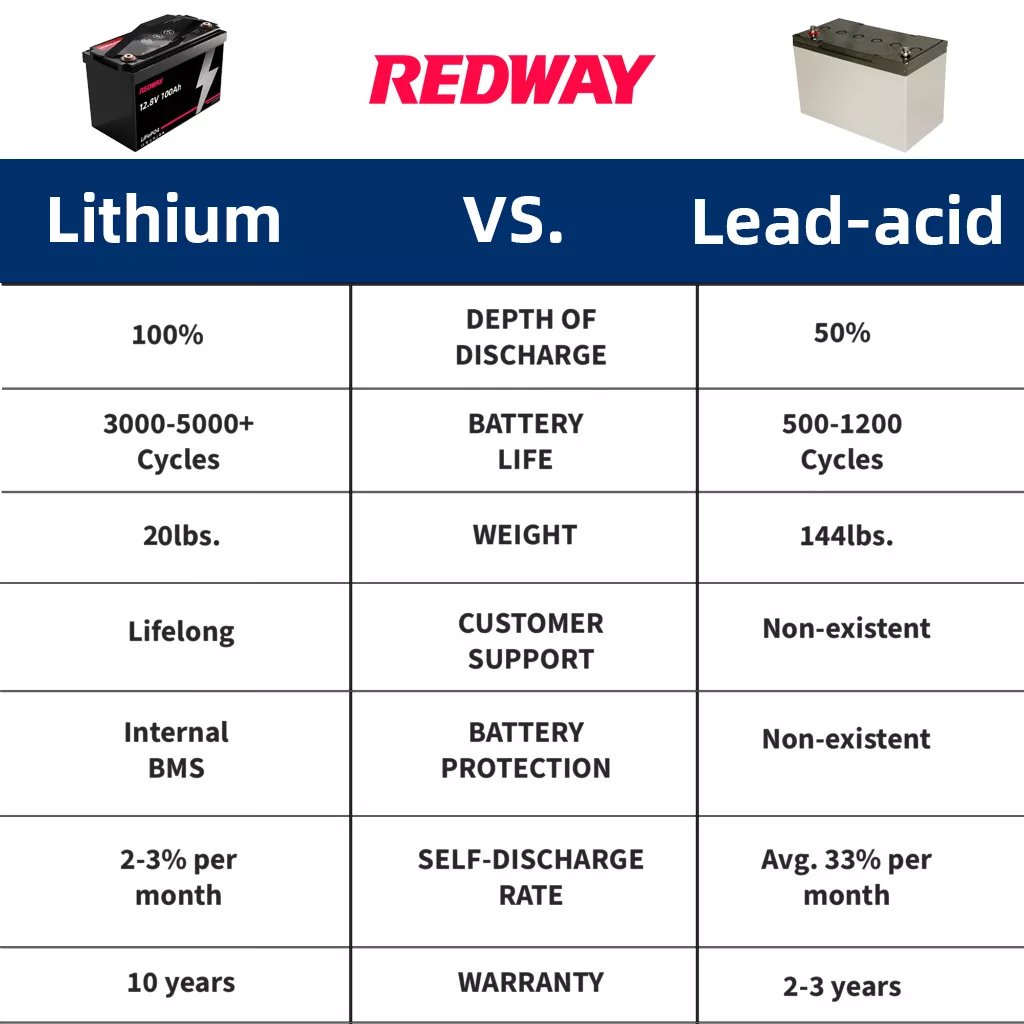A 100Ah lithium battery typically lasts between 2 to 3 years, depending on usage patterns and environmental conditions. Proper maintenance can help maximize its lifespan and performance.
Welcome to the world of RVing! Lithium batteries are revolutionizing RV power with longer-lasting and more efficient energy storage compared to lead-acid ones. A 100Ah lithium battery in an RV can last significantly longer due to its higher capacity and better performance. Factors like usage patterns and charging methods affect its lifespan. Maintenance is minimal, and many RV owners swear by the switch to lithium for their reliability. Explore this guide to decide if a 100Ah lithium battery suits your adventurous RV journeys!

The Rise of Lithium Batteries in RVs
RV enthusiasts are embracing lithium batteries over traditional lead-acid ones due to their superior advantages. These batteries offer higher energy density, longer lifespans, consistent power supply, and fast-charging capabilities, making them an optimal choice for off-grid adventures. Here are the key reasons for the surge in their popularity:
- Higher Energy Density: Lithium batteries store more power in a smaller, lighter package, perfect for saving space and weight during travels.
- Extended Lifespan: Lasting up to 10 years or more with proper care, lithium batteries outperform lead-acid counterparts, reducing costs and minimizing waste from frequent replacements.
- Consistent Performance: Unlike lead-acid batteries that experience voltage drops as they deplete, lithium batteries maintain steady performance until nearly completely drained, ensuring reliable power throughout the discharge cycle.
- Deeper Discharge Flexibility: Lithium batteries can be discharged up to 80% without harming their lifespan, a significant advantage over lead-acid batteries where deep discharges greatly reduce longevity.
- Rapid Charging Abilities: Lithium batteries charge faster, essential for RVers relying on solar panels or generators. Shorter waiting times and increased efficiency make them ideal for hitting the road sooner.
The combination of these benefits has fueled the surge in popularity among RV owners worldwide, making lithium batteries a compelling investment for consistent and long-lasting power storage during journeys.

Understanding Battery Capacity: Ah vs kWh
- Amp-hours (Ah): Measures the total charge a battery delivers over time. For instance, a 100Ah battery can provide 1 ampere for 100 hours or 10 amperes for 10 hours.
- Kilowatt-hours (kWh): Indicates energy consumed or produced in an hour, factoring in battery capacity and voltage. Calculated by multiplying Ah by volts and dividing by 1,000.
Understanding these units helps assess battery suitability for RV power needs. Knowing your device’s requirements in Ah or kWh helps estimate battery life accurately, aiding in better management during your adventures.
Factors that Affect the Lifespan of a 100Ah Lithium Battery in an RV
How to Properly Maintain and Extend the Life of Your Battery
Comparing Lithium Batteries to Traditional Lead-Acid Batteries
Conclusion: Is a 100Ah Lithium Battery Worth
Conclusion: Is a 100Ah Lithium Battery Worth it?
In assessing the rise of lithium batteries in RVs, understanding battery capacity, and exploring factors impacting a 100Ah lithium battery’s lifespan in an RV, the question remains: Is it worth investing in a 100Ah lithium battery?
Ultimately, the answer hinges on individual needs and priorities. While lithium batteries offer advantages like longevity, lighter weight, faster charging, and deeper discharge, they do come at a higher cost.
If durability, reliability, and extended usage without maintenance worries matter, a 100Ah lithium battery might justify its higher upfront cost. Its longer lifespan can offset replacement expenses over time.
For frequent boondockers or those relying heavily on off-grid camping, the ample reserves of a high-capacity lithium battery provide peace of mind.
However, if budget constraints are critical or your camping style involves consistent access to shore power or minimal power demands, traditional lead-acid batteries might be more cost-effective.
Choosing the right battery requires consideration of budget, usage patterns, and consulting experts or experienced RV owners for guidance.
Remember, regardless of battery type, proper maintenance—like regular charging cycles and avoiding deep discharges—greatly impacts performance and longevity.
Carefully weigh these factors to make an informed decision about whether a 100Ah lithium battery suits your RV needs.


